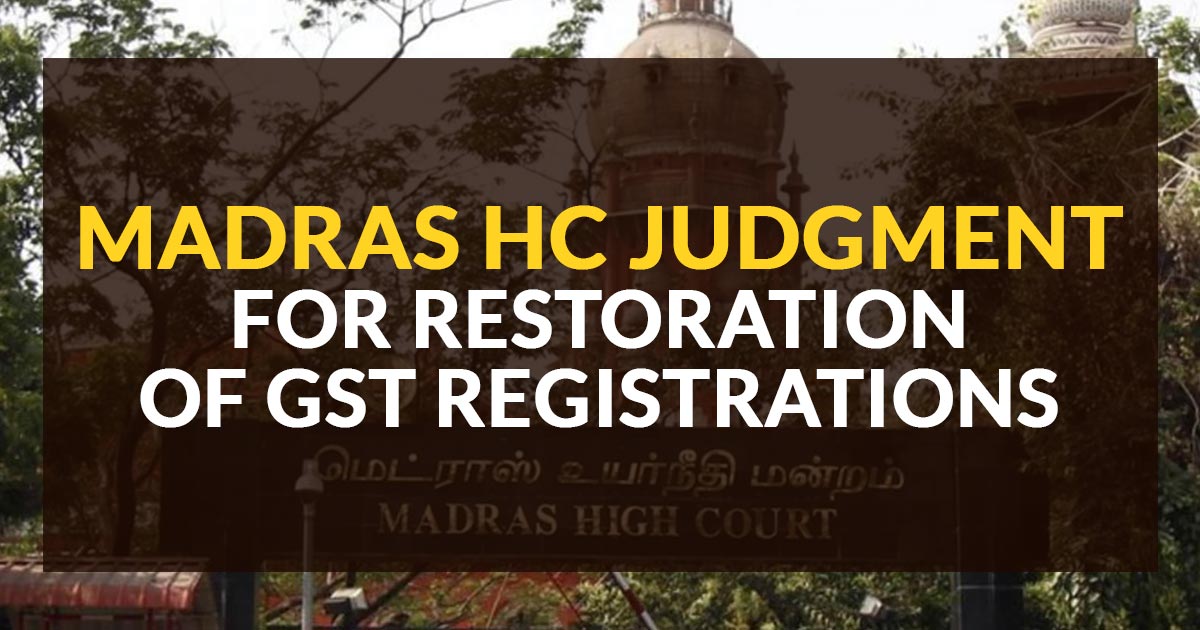
In a major relief to the taxpayers facing problems with restoration of GST registration even after payment of tax amount, penalty, and filing of GST registration, the Madras High Court directed the GST department to restore such registrations in order to avoid problems to the taxpayers and the loss of revenue to the department.
Justice C Saravanan acknowledged various penalties in which some of the applicants have furnished these writ applications with respect to the cancellation orders of GST enrollment besides that some of the applicants have furnished these written applications with respect to the order passed in the appeals opposite to the cancellation orders of the GST enrollment.
The court on permitting the writ applications agreed that the GST enrollment purpose is to ensure that the tax would be accumulated on the supplies of the goods or services or both and is furnished to the exchequer.
Making all these applicants prevented from the GST regime bounds would be a self-defeating action because no tax shall be furnished on the supplies of these applicants. It might be possible that the organized firms that follow the need for GST enactments might not provide business with these applicants. But by making the applicants prevented from the GST law the intention of the act would not be obtained. This also points out that the applicants shall not execute the business that is either supplying goods or services inside the unorganized sector. They would still perform their business in a secret way.
On this issue, encountered by the petitioners due to non-revival of GST registrations, the court said that they might not have the choice to provide the goods or services to set the players. They may still supply to smaller players who may not be keen on GST compliance by the petitioners. Not allowing the petitioners to revive their registration is to de-recognize a whole lot of entrepreneurs and to not collect GST at all from them.
This would only pressurize the system because these applicants would carry on their business and supply goods and services or finish with not furnishing the GST beneath the corresponding GST compliance. The same would be rendered towards the revenue loss to the government which is unplanned when this compliance was legislated.
Revoking the orders given through the council the court sees that there are enough securities beneath the GST enactments which applied for the same applicants despite when their enrollment is restored, there is no abuse by these petitioners and there is enough deterrence against default in either paying tax or in complying with the procedures of filing returns.
Moreover, the government needs taxes to fulfil the expenses. Through not drawing these applicants into the GST framework the forced exemption might be given on these applicants in a wrong way to not furnish the GST must stop their goods and services supplying excluding enrollment. For instance, an individual renting out any immovable property will resume providing these services irrespective of registration or not granted to revive the enrollment the GST would not be furnished unless the recipient is responsible to furnish the tax on the reverse charge basis. Thus these applicants must follow the GST regime and should continue to trade and business in a lawful way said the court.